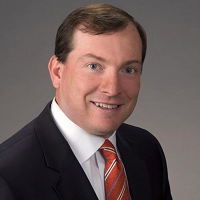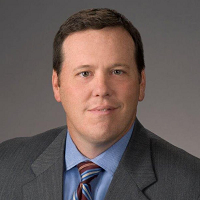Techniques crucial to successfully defending a high-stakes medical malpractice case.
In 2017, Dan Huff and Scott Bailey defended a pair of doctors accused of negligence leading to a Georgia man's cancer death. Huff and Bailey, founding partners of Atlanta-based defense firm Huff Powell Bailey, cleared both physicians in the $8 million case, one of the biggest med mal trials covered by CVN that year.
The two attorneys sat down with CVN's Arlin Crisco to analyze the case and talk about their approaches to defending malpractice cases.
The interview features video of the trial as the attorneys break down their courtroom techniques, from voir dire through closing arguments. You'll learn how they present expert testimony, why they think openings may be the most important part of trial, and more. It's a must-watch for defense attorneys interested in improving their craft, featuring two of the best defense attorneys in the business.
Not a subscriber?
Learn how you can access this webinar and an unrivaled library of trial video.
M. Scott Bailey
Scott Bailey, a founding partner of Huff Powell Bailey, has focused on medical malpractice defense since 1996, after years in mass tort work and multidistrict litigation. Bailey has tried more than 50 cases as lead counsel, with all but two resulting in a defense verdict or directed verdict, a record that places him among the country's top defense attorneys. A member of the American College of Trial Lawyers and CVN Georgia's Defense Attorney of 2017, Bailey's notable trials include a defense verdict for a physician in the wrongful death case of a TV sports director who suffered a heart attack, and a defense win for a radiologist at trial over a patient's cancer death.

Dan Huff
Since 1991, Huff Powell Bailey's Dan Huff has specialized in high-damage cases, with a particular emphasis defending medical malpractice suits. His record in defending cases throughout more than 110 trials, and across nearly every specialty of medicine, has earned his reputation as one of the nation's leading med mal defense lawyers. A Fellow in the American College of Trial Lawyers, Huff was named CVN Georgia's Defense Attorney of the Year in 2016. His notable wins include clearing a heart surgeon in an $8 million wrongful death case and a verdict for a surgeon at trial over claims surrounding complications from a gall bladder surgery.

Topics in Huff & Bailey Discussion
Click each topic below to skip directly to the discussion.
Dan Huff and Scott Bailey discuss how the covid pandemic has impacted their practice and the lasting impact they think the pandemic will have on the court system.
What you'll learn:
Quotable moment:
I think that Zoom depositions, and maybe in certain circumstances Zoom hearings, may be here to stay.— Scott Bailey on the future of remote proceedings post-covid.
The two attorneys detail the background of the case, a medical malpractice claim against a urologist and a radiologist over the kidney cancer death of a patient who had been treated by the doctors for kidney stones years earlier.
What you'll learn:
Quotable moment:
The case was very similar for each of the defendants. It involved the interpretation of a CT scan.... And it was the kind of case where either they would both be found negligent for misinterpreting or not appreciating something on the CT scan, or they would get defense verdicts. — Dan Huff on the central issue in the case against each defendant.
Strengths and weaknesses of each case
The pair detail their thoughts on the strengths and weaknesses of each case as they approached trial.
What you'll learn:
Quotable moment:
We see this in multiple-defendant cases a lot. That's a really tough argument to make, and it's an argument I think jurors have a hard time believing, that two doctors independently malpractice on their own on the same patient. — Huff on one inherent strength for the defense.
Huff and Bailey outline their approach to voir dire, both generally and in the specific circumstances of this case.
What you'll learn:
Quotable moment:
My mantra to younger lawyers is 'You've got to eliminate dangerous leaders.' — Bailey on which potential jurors an attorney should aim to cull during voir dire.
The pair discuss how they use openings to educate jurors on the complex facts of a med mal case through the defense point of view.
What you'll learn:
Quotable moment:
I think research shows that the majority of jurors that have a lean after opening statements continue with leaning all the way through the verdict. And everything after [openings] becomes confirmation bias in their minds. — Bailey on the importance of a strong opening.
Presenting powerful expert testimony
Bailey and Huff outline how they present expert testimony in a way that will resonate with jurors.
What you'll learn:
Quotable moment:
It gets them more comfortable and it really allows them to give their best testimony about what happened.— Huff on one reason why encouraging an expert to use demonstratives is important.
The two attorneys detail their approaches to cross-examining plaintiff's experts, both in the trial and generally.
What you'll learn:
Quotable moment:
I think [jurors] expect witnesses, particularly physicians, to be more professional and kind of hold it together. And they kind of expect lawyers to get kind of rowdy at times. — Bailey on how he believes jurors tend to interpret a tense cross-exam of expert witnesses.
Questioning a sympathetic plaintiff
Huff talks about his approach to deposing the plaintiff in the case, and the attorneys discuss the best ways to question sympathetic plaintiffs.
What you'll learn:
Quotable moment:
Hopefully, by the time you get to that point in the trial, you've built up credibility with the jury, that you're a reasonable person, a straight shooter, you don't waste time, you're not doing it to inflict any more harm on the person who is already injured. — Huff on questioning a sympathetic plaintiff.
The pair discuss their approach to closing arguments in the case and their keys to effective closings in medical malpractice cases as a whole.
What you'll learn:
Quotable moment:
The focus of my closing was going to be capitalizing on [my client's] performance on direct examination, in particular when he went through how he reads a CT scan, and the diligence that he uses, how careful he is, how much time he took. — Bailey on making his client's testimony a key portion of his closing.
Incorporating your personality into a trial presentation
The two attorneys discuss how they connect with jurors by bringing their own personalities to the courtroom.
What you'll learn:
Quotable moment:
I just think it helps the jury recognize that lawyers... are just regular people, too. — Huff on the importance of bringing your own personality to a trial presentation, including incorporating personal anecdotes from your life.
Huff and Bailey give their thoughts on the jury verdict and their opinions on how jurors in general tend to deliberate.
What you'll learn:
Quotable moment:
I'm not sure we get great feedback from jurors when it's a mixed audience [of plaintiff's and defense attorneys]. — Huff on juror comments to attorneys, post-verdict.
Next Steps
CVN offers hours of video on the topics Huff and Bailey discussed. Here's where to head next in our library.
Watch Moradov v. Atlanta Radiology Consultants, P.C., et al.
Watch CVN's trial coverage of:
Learn about CVN's 10 must-watch medical malpractice trials that led to defense verdicts.